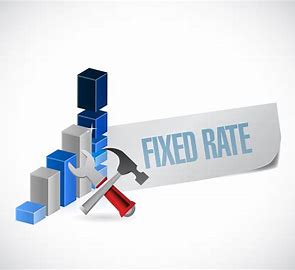 I am having a lot of conversations with existing and new clients about their fixed rate loans that are coming to an end.
I am having a lot of conversations with existing and new clients about their fixed rate loans that are coming to an end.
During the peak of the pandemic, the RBA provided banks access to cheap three-year fixed rate funding which they on-lent to their customers. It was estimated that fixed rate home lending surged from a historical rate of 15% of new home loan commitments to 46% in August 2021, with about 35% of total housing credit on a fixed rate term. These fixed rates are now starting to end with about 50% rolling off this year and the remainder occurring in 2024 and beyond.
With variable rates increasing by 4% over the past 12 months, borrowers are seeking guidance on what to do.
What happens when the fixed rate ends?
When the fixed rate period expires, the loan will convert to a variable rate that is benchmarked to the Banks’s home loan indicator rate less a discount negotiated at the time of the contract date.
Prior to the re-pricing period, the Bank will issue a letter advising what the indicative rate and repayments will be.
What are your options?
If you don’t do anything, the Bank will automatically convert the rate to the variable rate as previously indicated by them.
You can contact the Bank and ask for a further discount, and they may provide an improved offer, but they will generally want to know what competitor rate they are against.
Whilst staying with the same lender is an easy option, it doesn’t necessary represent the best choice for most borrowers.
The rise in interest rates coupled with cost-of-living pressures means that for most people, they have experienced a change in their personal financial circumstances since when the loan was originally fixed.
This is why now is the best time to review your current finances and personal goals to ensure that your current loan products are still best suited for your needs.
I am presently having discussions with clients at between one to three months before expiry of their fixed rate. This provides time for a review of their current financial situation and to compare rates being offered by their current lender to what can be provided by over 30 other lenders on our panel.
You might get a better deal from your current bank or look to switch banks altogether.
Also, a review could uncover other reasons where a refinance of a loan may be warranted. For example, many lenders are providing better pricing for loans where borrowers have strong equity in their property. If you have been paying your loan down and experienced good capital growth in your property, it may be worthwhile to re-write your loan so that it reflects a current valuation.
A home loan may have a 30-year term but as we have seen from recent history, a lot can change in a short time. It is therefore paramount that you review your loans on a regular basis. Once you have the information and understand what options are available, you will feel more confident in deciding on what to do.
